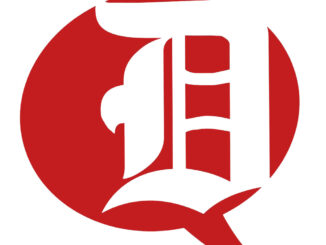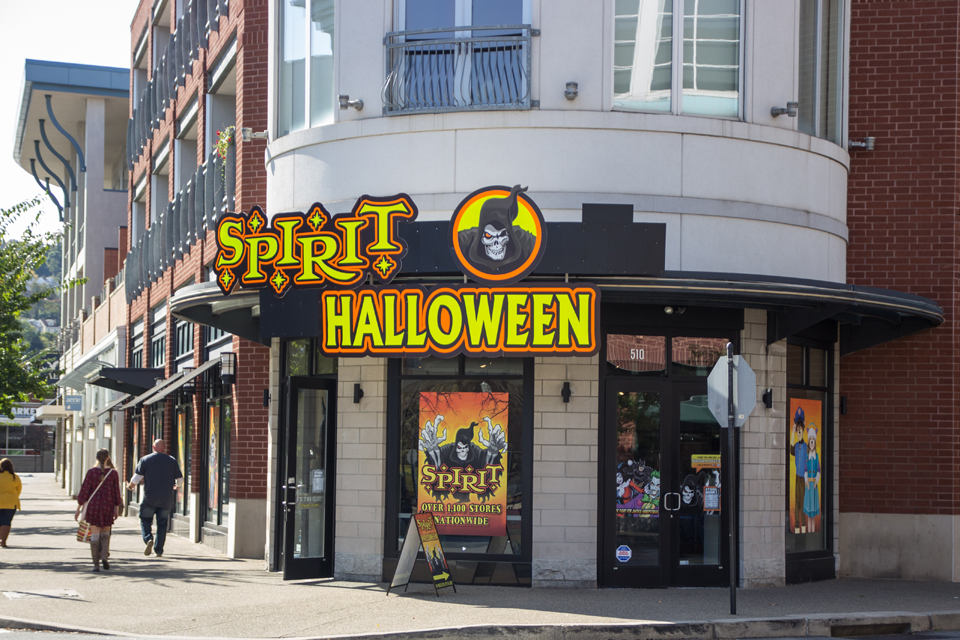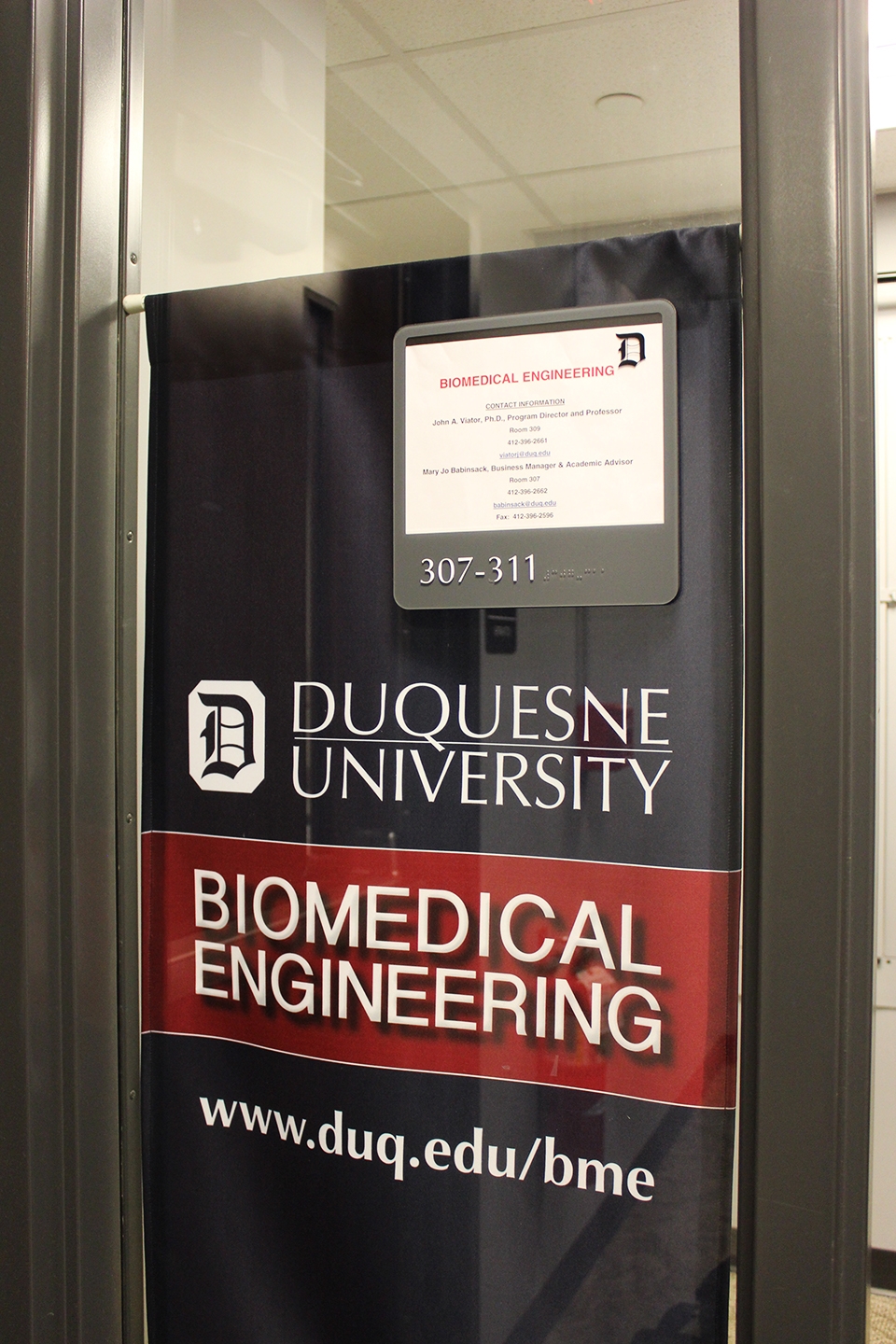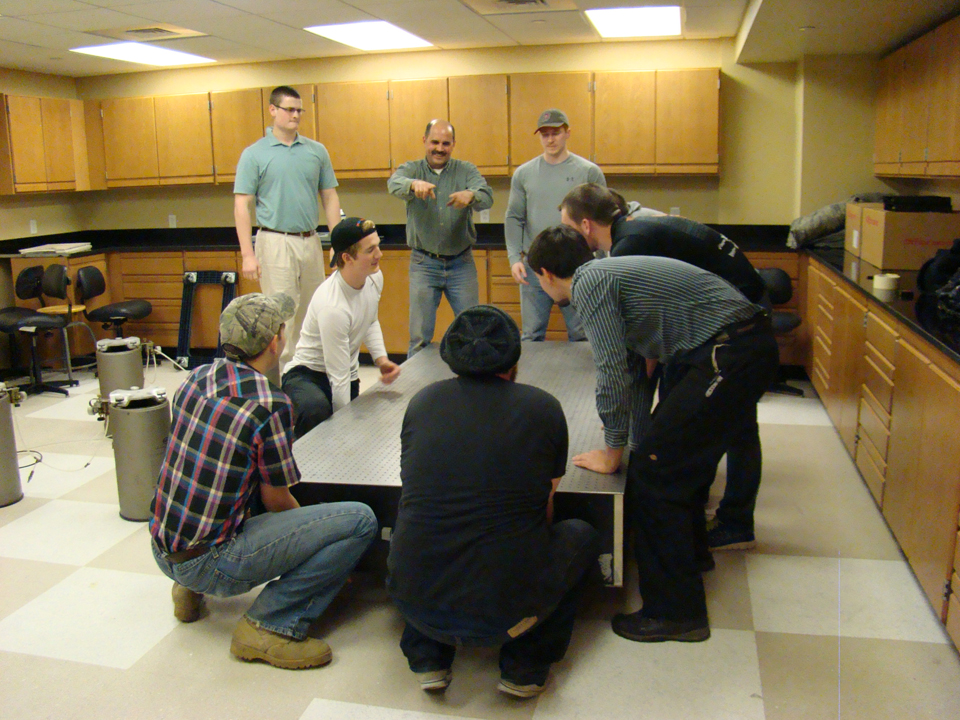
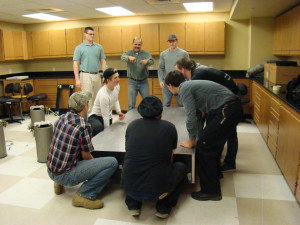
By Kaye Burnet | The Duquesne Duke
A newly-hired physics professor is working with students to construct a research lab that will give students access to hands-on experience in experimental atomic physics.
Assistant professor of physics Theodore Corcovilos, who was hired in fall 2013, will oversee the construction of a research lab in Fisher Hall.
Currently, the physics department has a material science research lab on the second floor of the building. Using funding from the Bayer School of Natural and Environmental Sciences and external grants, Corcovilos will fill a second lab in Fisher with high-powered lasers and other equipment.
Students from all four years of study will help to set up the lab in exchange for payment or research credit. Freshman physics major Gage Tiber said he got his job in the lab by approaching Corcovilos during the first week of the fall semester.
“We’ll have a weekly meeting to learn and listen to lectures,” Tiber said. “In many ways, it will be like a class. There is a schedule with hours set up every week.”
Corcovilos said work in the lab will start off slowly, and running experiments may not begin for another five years. During that time, the lab will be constructed and the equipment fine-tuned.
“I told one of my students that I’m going to teach him to be a general contractor, because, at least initially, we’re mostly building,” Corcovilos said. “We have to design and build some lasers, a vacuum system, magnets and all the electronics needed to control these things.”
Eventually, the lab will be open to any physics major who wishes to gain research experience.
The lab is currently a bare room with a few scattered pieces of equipment and a large vibration isolation table, which creates a cushion of air to protect laser experiments from natural vibrations. However, in a few weeks, “if you peek into the lab on a random day you’ll likely see someone soldering wires or sweating pipes or sitting at the computer writing code,” Corcovilos said.
The physics department made the decision to hire Corcovilos “with great care,” according to department chair Simonetta Frittelli.
“One of our faculty had retired the previous year, and we set about replacing him….we had a very exciting search, and we had outstanding candidates apply,” Frittelli said.
To ensure that “Dr. C,” as his students call him, was well received in the department, Frittelli brought him in to speak with the students and faculty as part of his interview. For Corcovilos, this was not a challenge.
“I love talking to the students,” Corcovilos said. “I really think they were more nervous than I was.”
Corcovilos suits the Duquesne physics department well, Frittelli said.
“He made the perfect replacement, because with his specialty in atomic physics, he uses atoms to create a quantum computer in the lab,” Fritteli said. “We basically went from a theorist to an experimentalist…in the same topic.”
Though working on the quantum computer is Corcovilos’ ultimate dream, for now, the new professor said his goal is “that the students in my lab get some practical skills and an understanding of the research process. Experience with optics, electronics and writing computer software…could help them find jobs after they graduate.”

